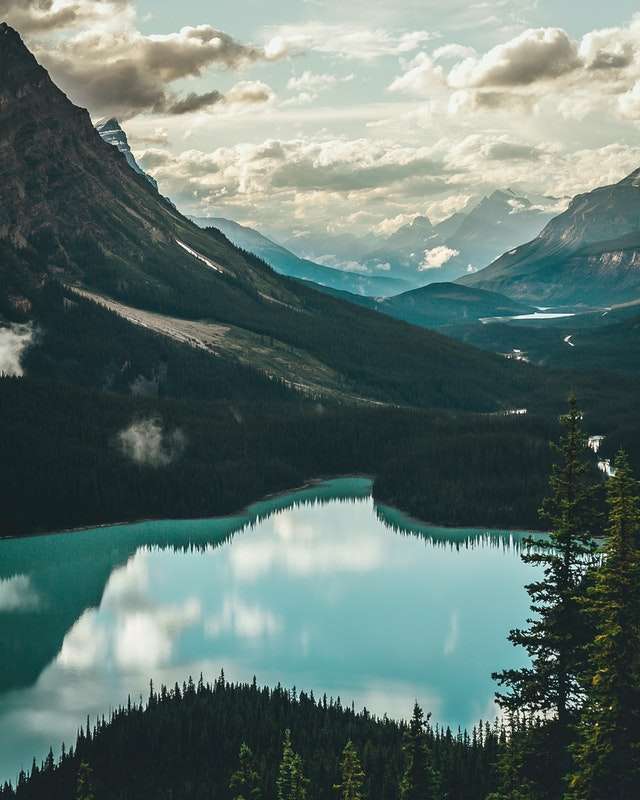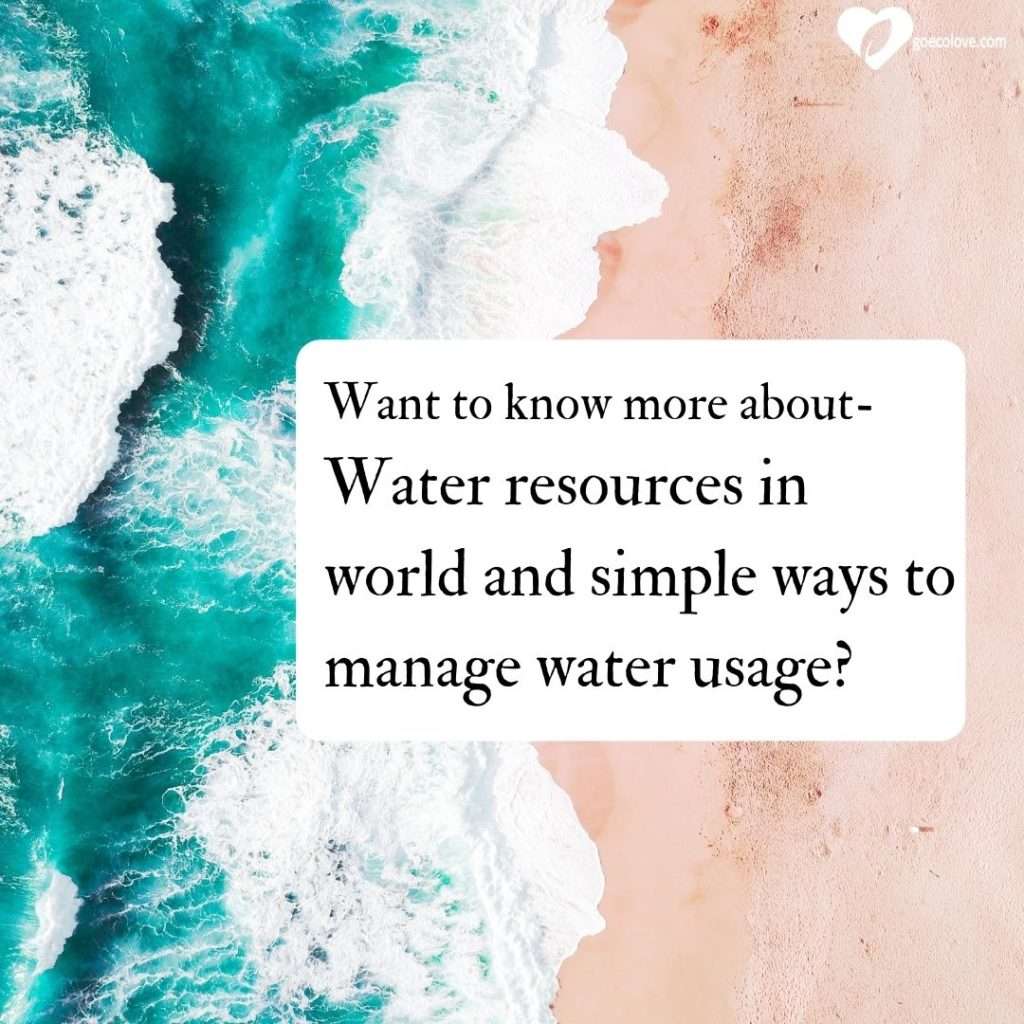The most available resources for use are the waters of the oceans, rivers, and lakes. Besides these, other available water resources include groundwater and deep subsurface waters and glaciers and permanent snowfields. Considering these, our main sources of water for drinking, washing, agriculture and industry are surface water, groundwater and collected rainwater, all of which are dependent on rain and snow falling on the Earth’s surface.
Water resources are important because they are needed for life to exist. These sources of water are useful or potentially useful to humans. Many uses of water include agricultural, industrial, household, recreational and environmental activities. Virtually all humans require fresh water.
The world’s water exists naturally in different forms and locations: in the air, on the surface, below the ground, and in the oceans. Freshwater accounts for only 2.5% of the Earth’s water, and most of it is frozen in glaciers and ice caps.
Here are the main five water sources:
- Municipal.
- Ground water (well)
- Surface water. Lake. River. Stream (creek) Shallow well.
- Rainwater.
- Seawater.
Water resources are natural resources which are useful as a source of water supply. 97.5% of the water on the Earth is salt water and only 2.5% is freshwater; slightly over two thirds of this is frozen in glaciers and polar ice caps. The remaining unfrozen freshwater is found mainly as groundwater, with only a small fraction present above ground or in the air.
Natural sources of fresh water include surface water, under river flow, groundwater and frozen water. Artificial sources of fresh water can include treated wastewater (reclaimed water) and desalinated seawater.
The Threat
Water resources are under threat from water scarcity, water pollution, water conflict and climate change. Fresh water is a renewable resource, yet the world’s supply of groundwater is steadily decreasing, with depletion occurring most prominently in Asia, South America and North America. It is still unclear how much natural renewal balances this usage, and the extent to which ecosystems are threatened. The framework for allocating water resources to water users is known as water rights.
Do you know the water availability on earth?

To summarize, 70% of Earth’s surface is water of which 97.5% is salt water and 2.5% is freshwater. Less than 1% of this 2.5% amount of freshwater is accessible (the majority is frozen in ice caps or exists as soil moisture). The earth has an abundance of water, but unfortunately, only a small percentage (about 0.3 percent), is even usable by humans. The other 99.7 percent is in the oceans, soils, icecaps, and floating in the atmosphere. Still, much of the 0.3 percent that is usable is unattainable.
Freshwater is vital for life, supporting ecosystems and human civilizations. We use freshwater in many aspects of daily life including food production, power generation, manufacturing, and sanitation.
There are amazing solutions to avoid water Scarcity
- Save Water Whenever Possible.
- Education and awareness creation to save water.
- Recycle Water as much as possible.
- Make use of advanced Technology Related to Water Conservation.
- Improve Methods Related to farming.
- Avoid using chemicals in farming.
- Improve the waste material from people living that is carried away from their homes in water in large underground pipes systems.
- Make sure to keep better Water Distribution Infrastructure.
Simple ways to manage water usage.
Next to air, water is the most important element for the preservation of life. Water is a finite commodity which, if not managed properly, will result in shortages in the near future.
- Check your toilet for leaks.and get a low-flush toilet
- Stop using your toilet as an ashtray or wastebasket.
- Store rainwater.
- Take shorter showers: Showers can use anything between 6 and 45 litres per minute. Consider getting an aerated shower head, which combines water and air, or inserting a regulator in your shower, which puts an upper limit on flow rates.
- Turn off the water while brushing your teeth and shaving.
- Save up your dirty clothes and make use of automatic washing machines and automatic dishwashers for full loads only: this cuts out unnecessary washes in between.
- Regularly check your kitchen pipes and the dishwasher hose for slow leaks.
- Keep a bottle of drinking water in the refrigerator.
- If you wash dishes by hand, don’t leave the water running for rinsing.
- Check faucets and pipes for leaks
- Water your lawn only when it needs
- Don’t water the gutter.
- Put a layer of mulch around trees and plants.
- Try to make use of a broom to clean driveways, sidewalks and steps
- Don’t keep running the plastic tube that water can flow through while washing your car
- Tell your children not to play with the hose and sprinklers

